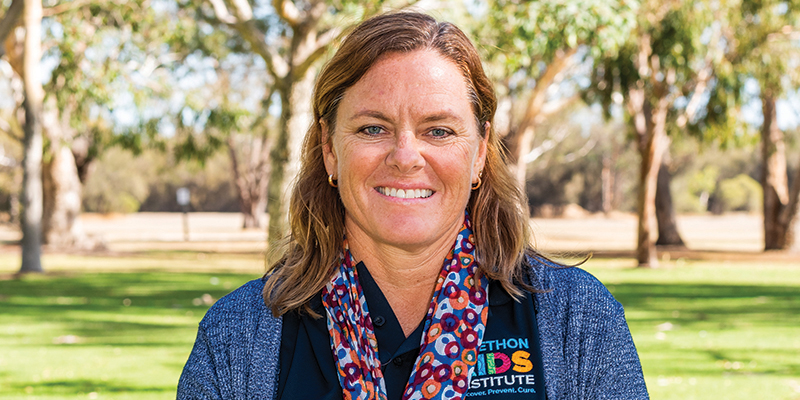Search
Showing results for "Professor"
Research
ISPAD Clinical Practice Consensus Guidelines 2022: Assessment and management of hypoglycemia in children and adolescents with diabetesTim Jones MBBS DCH FRACP MD Co-head, Diabetes and Obesity Research Co-head, Diabetes and Obesity Research Areas of research expertise: Diabetes
Research
Further investment in Aboriginal and Torres Strait Islander men's health research funding is urgently requiredAlex Brown BMed, MPH, PhD, FRACP (hon.), FCSANZ, FAAHMS Professor of Indigenous Genomics +61421278314 alex.brown@anu.edu.au Professor of Indigenous

News & Events
New project aims to improve cultural safety in mental health servicesThe project will focus on improving cultural safety in mental health services for Aboriginal and Torres Strait Islander children and young people.

News & Events
Embrace-led roundtable talk trauma-informed careEmbrace's Co-Directors have led a roundtable at Government House on the benefits of trauma-informed care

News & Events
Embrace research presented at SMHR conferenceAssociate Professor Bep Uink and Head of Kulunga Aboriginal Unit Cheryl Bridge watched on by Associate Professor Yael Perry at the SMHR conference.
Research
Engineering new tools to improve energy metabolismAleksandra Filipovska BSc PhD Louis Landau Chair in Child Health Research; NHMRC Leadership Fellow; Deputy Director, ARC Centre of Excellence for
Research
Medication Use in Type 1 Diabetes and the Association with Socioeconomic Disadvantage: Analysis of a National Linked DatasetTo explore trends in the receipt of commonly prescribed medications (beyond insulin) in people with type 1 diabetes in Australia, including polypharmacy, and to investigate socioeconomic disparities across these trends.

News & Events
Horses helpingProfessor Juli Coffin’s most recent research focuses on the healing power of horses – also known as equine-assisted learning.

News & Events
Global consortium aims to protect babies from their first week of lifeBabies are most vulnerable to life-threatening diseases in their first few weeks of life, yet current vaccines can’t be given until two months of age.
Research
Effect of frequency of sensor use on glycaemic control in individuals on sensor-augmented pump therapy with and without Predictive Low Glucose Management SystemImproved frequency of sensor use improves glycaemic control
